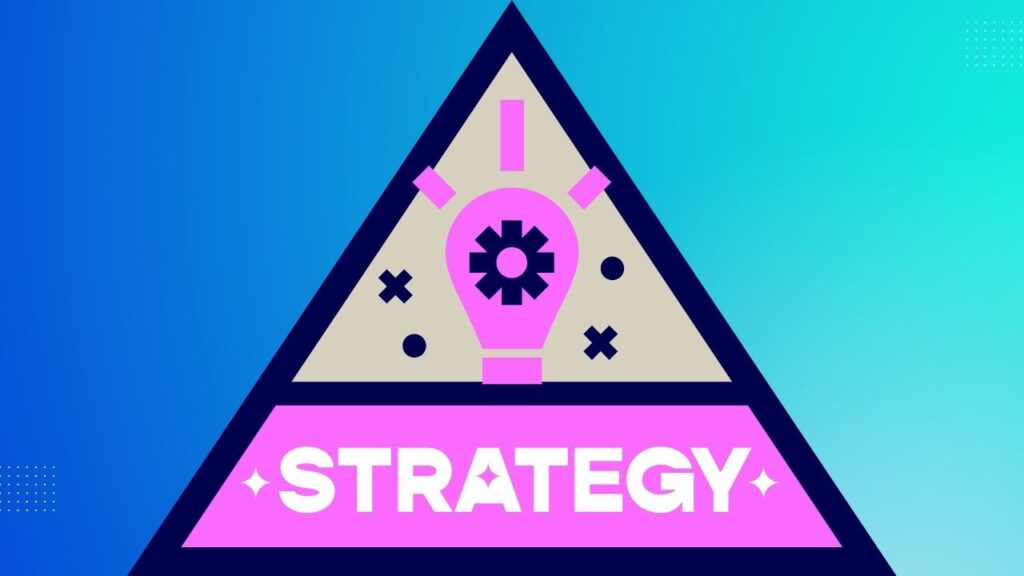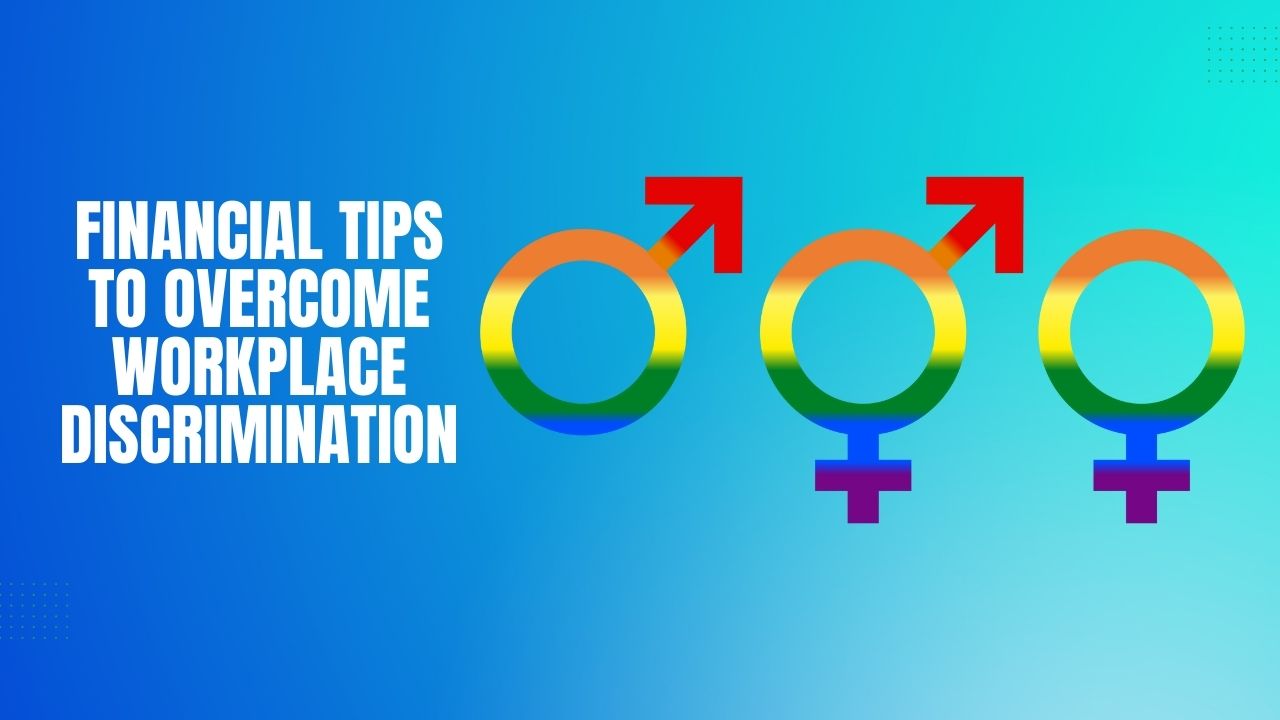Let’s tackle a controversial topic that hits close to home for many of us – workplace discrimination.
It’s a harsh reality that some of us face, and it can significantly impact our finances.
But fear not, because I’ve got some valuable financial tips to share that’ll help you not only overcome workplace discrimination but also stay wealthy in the process.
Did you know that workplace discrimination affects a significant number of millennials across various industries?
According to recent research, around 1 in 5 young professionals have experienced discrimination or harassment at work.
It’s a sobering statistic, but it’s essential to recognize the challenges so we can tackle them head-on.
I get it; navigating through discrimination is tough, and it can take a toll on your emotional well-being.
But here’s the thing – our finances don’t have to suffer just because of someone else’s ignorance or bias.
We can take control and make smart financial moves that’ll help us come out on top.
In this article, we’ll explore practical strategies for budgeting, saving, investing, and negotiating fair compensation even in the face of workplace discrimination.
I’ll share some eye-opening statistics, backed by solid research, to shed light on the severity of the issue.
Together, we’ll learn how to build financial resilience and protect our assets while striving for a better future.
So, grab a coffee, take a seat, and let’s dive into these financial tips to overcome workplace discrimination and stay wealthy – because nothing can stop us from reaching our goals and securing our financial freedom. Let’s do this!
1. The Importance of Financial Resilience in the Face of Workplace Discrimination
1.1 Building Financial Resilience as a Millennial
As we navigate the challenges of workplace discrimination, it becomes even more essential to have a sturdy financial foundation that can weather any storm.
1.1.1 Why Financial Resilience Matters
- Fact: Did you know that millennials are more likely to experience workplace discrimination compared to previous generations? Studies show that around 37% of millennials report facing some form of discrimination at work.
- Importance of an Emergency Fund: Having an emergency fund is like having your financial safety net. It’s a pot of money set aside specifically for unexpected situations, like a sudden job loss or a hostile work environment.
1.1.2 Steps to Build Financial Resilience
| Steps to Build Financial Resilience | Why It Matters |
|---|---|
| 1. Create an Emergency Fund | Cushion against sudden income loss |
| 2. Eliminate High-Interest Debt | Relieves financial stress and boosts credit score |
| 3. Invest in Yourself | Continuous learning for better job opportunities |
| 4. Diversify Income Streams | Additional income during tough times |
| 5. Build a Solid Budget | Manage money efficiently, optimize savings |
Remember, building resilience is not about getting rich overnight.
It’s about taking small, consistent steps to strengthen our financial position and protect ourselves from the uncertainties that discrimination may bring.
Related Article: Strategies For Building An Emergency Fund
Related Article: Debt-Free Living: The Proven Strategies for Paying Off Multiple Debts
Related Article: Securing Your Future: Tips for Saving and Investing in College Education
Related Article: Smart Strategies for Diversifying Your Investment Portfolio
1.2 Recognizing the Interplay Between Workplace Discrimination and Finances
Workplace discrimination can have a ripple effect on our finances. Yeah, it’s like a chain reaction that starts at work and affects every aspect of our financial life.
1.2.1 How Workplace Discrimination Impacts Finances
- Research: Studies reveal that individuals who experience workplace discrimination are more likely to have lower job satisfaction and higher levels of stress, leading to potential productivity loss and career stagnation.
- Wage Gap: Discrimination can result in unequal pay, contributing to a persistent gender and racial wage gap. On average, women and people of color still earn less than their white male counterparts.
1.2.2 Recognize the connection
| Recognizing the Impact | The Consequences |
|---|---|
| 1. Lower Job Satisfaction | Reduced motivation and engagement at work |
| 2. Higher Stress Levels | Negative impact on overall well-being |
| 3. Unequal Pay and Advancement Opportunities | Long-term financial setbacks and career limitations |
| 4. Limited Career Growth | Hindered earning potential and future financial security |
It’s essential to be aware of how workplace discrimination can influence our finances.
By understanding the connection, we can proactively take steps to minimize its impact and focus on our financial growth.

2.1 Creating a Discrimination-Resistant Budget
Budgeting is like the backbone of our financial journey, especially when dealing with workplace discrimination.
Let’s create a budget that can withstand any challenges that come our way.
2.1.1 Why a Discrimination-Resistant Budget Is Key
- Stat: Workplace discrimination can lead to lower job satisfaction and potential income loss. Having a solid budget helps us manage our money efficiently during these tough times.
- Fact: A recent study found that 6 out of 10 millennials experience financial stress, which can be exacerbated by discrimination-related issues at work.
2.1.2 Budgeting Table in Practice
| Essential Budget Categories | Why It Matters |
|---|---|
| 1. Fixed Expenses | Predictable costs, like rent and utilities |
| 2. Variable Expenses | Fluctuating costs, like groceries and entertainment |
| 3. Emergency Fund Contributions | Building that financial safety net |
| 4. Debt Repayment | Managing and reducing high-interest debts |
| 5. Investment Contributions | Securing our future and growing our wealth |
By allocating our money wisely, we can ensure our budget remains strong even during difficult times.
Related Article: How To Create A Budget And Stick To It
2.2 Allocating Resources Wisely in Challenging Times
Let’s talk about how to manage our resources wisely when facing workplace discrimination. It’s all about making smart decisions to safeguard our financial stability.
2.2.1 How to Allocate Resources Smartly
- Research: Did you know that 68% of millennials have changed their spending habits due to the COVID-19 pandemic? Being adaptable in challenging times is crucial to financial success.
- Fact: Allocating resources wisely also means being strategic about savings and investments, even if we’re dealing with workplace discrimination.
2.2.2 Resource allocation tips
- Prioritize essential expenses like housing, food, and utilities.
- Consider reducing discretionary spending on non-essential items.
- Save consistently, even if it’s a small percentage of our income.
- Explore low-risk investments that align with our financial goals.
- Utilize resources like apps and financial tools to track spending.
Remember, resource allocation is all about being flexible and making informed choices that align with our financial objectives, especially during challenging times.
3. Saving and Investing While Dealing with Workplace Discrimination
3.1 Overcoming Barriers to Saving
Saving money is crucial for our financial well-being, especially during tough times like workplace discrimination.
Let’s break down some barriers and boost those savings!
Saving Challenges for Millennials:
- Research: Did you know that around 60% of millennials have less than $10,000 in savings? Discrimination-related setbacks can make saving even more challenging.
- Fact: A recent study revealed that financial stress due to workplace discrimination can lead to decreased savings rates and increased debt levels.
3.1.1 Tackle the barriers
| Barriers to Saving | Overcoming Strategies |
|---|---|
| 1. Irregular Income | Set a budget based on the lowest expected income |
| 2. High Living Costs | Reduce non-essential expenses and live frugally |
| 3. Debt Obligations | Create a debt repayment plan to free up more cash |
| 4. Emergency Fund Concerns | Start small and gradually build an emergency fund |
| 5. Lack of Financial Education | Educate ourselves on saving tactics and personal finance |
By recognizing and addressing these barriers, we can build a strong foundation of savings that can protect us during challenging times.
3.2 Investment Approaches to Secure Your Future
Let’s talk about investing for a secure future amidst workplace discrimination. It’s time to grow our wealth and secure our financial freedom!
Investing Wisely, Despite the Challenges:
- Stat: Over 53% of millennials have started investing, but workplace discrimination might make some hesitant to take the plunge.
- Fact: Investing early in life can significantly impact our financial future. Time and compound interest can work wonders for our wealth.
3.2.1 Investment strategy
- Start with low-cost index funds for diversified growth.
- Consider investing in your employer’s retirement plan.
- Research and invest in companies with strong growth potential.
- Seek guidance from a financial advisor for tailored advice.
- Stay informed about market trends and economic developments.
Investing may seem daunting, but with the right approach, it can become a powerful tool in securing our financial future.
Related Article: The Secrets to Achieving Financial Independence and Retiring Early as a Millennial
Related Article: 24 Powerful Wealth-Building Strategies for Millennials
4. Negotiating Fair Compensation During Workplace Discrimination

4.1 Strategies for Assertive Salary Negotiations
Negotiating your salary is a powerful way to tackle workplace discrimination head-on.
Let’s arm ourselves with the right strategies to secure fair compensation.
The Gender Pay Gap Fact:
- Stat: Did you know that women, on average, earn about 82 cents for every dollar earned by men? Workplace discrimination plays a role in perpetuating this gender pay gap.
4.1.1 Assertive negotiation tactics
| Assertive Negotiation Strategies | Why It Matters |
|---|---|
| 1. Research Market Salaries | Know your industry standards to justify your ask |
| 2. Highlight Your Accomplishments | Showcase your achievements and value to the company |
| 3. Practice Confidence | Stay confident and composed during negotiations |
| 4. Be Prepared to Compromise | Find common ground while standing your ground |
| 5. Emphasize Future Contributions | Demonstrate how you’ll continue to add value |
With these strategies, we can advocate for fair compensation and challenge any discrimination-based pay disparities.
4.2 Understanding Your Worth and Overcoming Bias
It’s essential to recognize our worth and rise above biases in the workplace. Overcoming discrimination starts with understanding our true value.
The Race Pay Gap Fact:
- Research: Studies show that people of color continue to face wage disparities, earning less on average than their white counterparts.
4.2.1 Understand our worth and combat bias
- Know your skills, experience, and contributions.
- Seek feedback from mentors or colleagues.
- Network to broaden opportunities and exposure.
- Challenge stereotypes and bias with your achievements.
- Pursue professional development to grow your value.
By understanding our worth and pushing past bias, we can position ourselves for fair compensation and break down barriers in the workplace.
Related Article: How To Negotiate Your Salary And Benefits
Related Article: Maximizing Employee Benefits And Perks For Financial Gain
Related Article: What They Don’t Teach You in School: How to Negotiate Your Job Offer
5. Debt Management and Workplace Discrimination
5.1 Dealing with Debt Stress during Difficult Workplace Situations
Dealing with debt stress on top of workplace discrimination can be overwhelming. Let’s tackle it head-on and find a path to financial peace.
The Impact of Debt Stress:
- Stat: Did you know that around 60% of millennials report feeling stressed about their finances, and debt is a significant contributor to this stress?
5.1.1 Managing Debt Stress
| Steps to Manage Debt Stress | Why It Matters |
|---|---|
| 1. Assess Your Debt Situation | Understand your debts and their impact on your finances |
| 2. Prioritize Debt Repayment | Focus on high-interest debts first for quicker relief |
| 3. Seek Support and Guidance | Talk to financial advisors or counselors for help |
| 4. Practice Stress-Relief Techniques | Yoga, meditation, or exercise can reduce stress levels |
| 5. Focus on Your Financial Goals | Maintain perspective and work towards your objectives |
By addressing debt stress, we can better manage workplace discrimination’s emotional toll and focus on achieving financial well-being.
5.2 Creating a Debt Repayment Plan for Financial Freedom
Alright, let’s tackle debt head-on with a solid repayment plan. It’s time to break free from its clutches and pave the way for financial freedom.
The Student Loan Debt Fact:
- Research: Did you know that the average student loan debt for millennials in the U.S. is around $30,000? Workplace discrimination can exacerbate the challenge of debt repayment.
5.2.1 Debt repayment planning tips
- List all debts and their interest rates.
- Set a realistic timeline for repayment.
- Explore debt consolidation or refinancing options.
- Allocate extra funds towards debt repayment.
- Stay disciplined and avoid new debt.
By sticking to a repayment plan, we can gradually eliminate debt, reduce financial stress, and work towards achieving our financial goals.
Related Article: Creative Ways To Increase Your Income And Pay Off Debt
Related Article: Understanding And Managing Credit Card Debt
6. Building an Emergency Fund Amidst Workplace Discrimination

6.1 The Importance of Emergency Savings for Financial Stability
An emergency fund is like a superhero cape during workplace discrimination. Let’s understand why it’s crucial for our financial stability.
The Financial Security Fact:
- Stat: Surprisingly, around 40% of Americans don’t have enough savings to cover a $400 emergency expense. Having an emergency fund can change that.
6.1.1 Why an emergency fund is important
| Benefits of an Emergency Fund | Why It Matters |
|---|---|
| 1. Financial Safety Net | Protects us from unexpected expenses or income loss |
| 2. Peace of Mind | Reduces stress and anxiety during challenging times |
| 3. Avoiding Debt Traps | Prevents reliance on credit cards or high-interest loans |
| 4. Flexibility in Career Choices | Provides a cushion to explore new job opportunities |
| 5. Long-Term Financial Health | Lays the foundation for our overall financial stability |
Having an emergency fund means we’re prepared for any curveballs life throws our way.
6.2 Practical Steps to Establishing an Emergency Fund
Alright, let’s get practical with building our emergency fund. It’s time to take action and secure our financial future.
The Savings Habit Fact:
- Research: Studies show that millennials are less likely to have emergency savings compared to older generations.
Let’s create a list of practical steps:
- Set a savings goal for your emergency fund.
- Start small and gradually increase contributions.
- Automate savings to make it a habit.
- Separate the fund from your regular checking account.
- Avoid using the fund for non-emergencies.
By taking these practical steps, we’ll build an emergency fund that shields us from financial uncertainties, including workplace discrimination.
7. Financial Self-Care and Coping with Workplace Harassment
7.1 Mental and Emotional Well-being in Times of Discrimination
When facing workplace harassment, our mental and emotional well-being are just as important as our finances. Let’s prioritize self-care!
The Emotional Toll Fact:
- Stat: Workplace discrimination can lead to increased stress and anxiety levels, affecting our overall well-being.
7.1.1 Mental and emotional self-care
| Self-Care Strategies | Why It Matters |
|---|---|
| 1. Mindfulness and Meditation | Reduces stress and promotes mental clarity |
| 2. Connecting with Supportive Friends/Family | Social support is crucial during tough times |
| 3. Limiting Exposure to Negative Triggers | Create a safe space for healing and recovery |
| 4. Engaging in Hobbies and Activities | Enhances joy and provides a positive outlet |
| 5. Seeking Professional Help if Needed | Therapy or counseling can offer guidance and healing |
Remember, caring for our mental and emotional well-being is an essential aspect of coping with workplace harassment.
7.2 Seeking Support and Professional Guidance
Alright, let’s talk about seeking support during difficult times. It’s okay to lean on others and seek professional guidance when needed.
The Power of Support Fact:
- Research: Studies show that individuals who receive emotional support during tough times experience better overall well-being.
Seeking support and guidance:
- Talk to friends or family about your experiences.
- Join support groups for individuals facing similar challenges.
- Seek advice from mentors or colleagues you trust.
- Consider professional counseling or therapy.
- Engage with online resources and communities.
Remember, it’s okay to seek help when dealing with workplace harassment. Surrounding ourselves with support can make all the difference.
8. Supplementing Income and Side Hustles in a Hostile Work Environment

8.1 Exploring Additional Income Streams
In a hostile work environment, finding extra income streams can be a game-changer. Let’s explore how to boost our earnings!
The Gig Economy Fact:
- Stat: Did you know that over 36% of U.S. workers participate in the gig economy? It’s a flexible way to earn extra cash.
8.1.1 Additional income opportunities
| Income Streams to Explore | Why It Matters |
|---|---|
| 1. Freelancing and Consulting | Monetize your skills and talents outside of your main job |
| 2. Renting Out Assets | Earn passive income from renting out your property or car |
| 3. Online Selling and E-commerce | Start an online store or sell products on e-commerce platforms |
| 4. Participating in Market Research | Get paid for sharing your opinions through market research |
| 5. Teaching or Tutoring | Share your expertise as a tutor or online instructor |
By exploring additional income streams, we can protect our finances in the face of workplace discrimination.
8.2 Side Hustles as a Financial Buffer
Alright, side hustles can act as a financial buffer during tough times. Let’s embrace the hustle and secure our financial future.
The Side Hustle Impact Fact:
- Research: A recent study found that over 45% of millennials have a side hustle, generating extra income for various purposes.
Some lucrative side hustles:
- Ride-sharing or food delivery services
- Freelance writing or graphic design
- Pet sitting or dog walking services
- Renting out a spare room on short-term rental platforms
- Virtual assistance or social media management
Side hustles can offer financial security and empower us to overcome workplace discrimination.
Related Article: How To Navigate The Gig Economy And Manage Freelance Income
9. Safeguarding Assets and Insurance Coverage during Workplace Discrimination
9.1 Protecting Your Financial Future with Insurance
Insurance is like a safety net for your financial future, especially during workplace discrimination. Let’s protect what matters!
The Insurance Coverage Fact:
- Stat: Surprisingly, around 1 in 4 millennials do not have health insurance, and even fewer have disability or life insurance.
9.1.1 Safeguarding with Insurance
| Insurance Coverage to Consider | Why It Matters |
|---|---|
| 1. Health Insurance | Covers medical expenses and provides access to healthcare |
| 2. Disability Insurance | Offers income protection in case of injury or illness |
| 3. Life Insurance | Protects loved ones financially in case of the unexpected |
| 4. Home/Renters Insurance | Safeguards your home and belongings from unexpected events |
| 5. Liability Insurance | Shields you from financial losses due to lawsuits |
By having the right insurance coverage, we can secure our financial well-being during difficult times.
9.2 Legal and Financial Precautions to Secure Your Assets
Alright, let’s talk about protecting your assets with legal and financial precautions. It’s time to safeguard what you’ve worked hard for!
The Asset Protection Fact:
- Research: Studies show that nearly 60% of millennials don’t have a will, and even fewer have estate planning in place.
Some legal and financial precautions:
- Create a will and estate plan to ensure your assets are distributed as per your wishes.
- Consider setting up a trust to protect assets from creditors and lawsuits.
- Review your beneficiaries on accounts to keep them updated.
- Consult a legal professional for advice on asset protection strategies.
- Keep important documents, like insurance policies and estate plans, organized and accessible.
By taking these precautions, we can safeguard our assets and protect our financial future during workplace discrimination.
Related Article: Unbelievable Ways Millennials Can Save Money on Insurance
10. Investing in Professional Development while Facing Workplace Discrimination

10.1 Enhancing Your Skills for Career Advancement
Despite workplace discrimination, investing in professional development can take your career to new heights. Let’s level up!
The Career Growth Fact:
- Stat: Studies show that individuals who invest in professional development are 15% more likely to advance their careers.
10.1.1 Enhancing your skills
| Professional Development Strategies | Why It Matters |
|---|---|
| 1. Attend Workshops and Seminars | Stay updated on industry trends and best practices |
| 2. Pursue Online Courses and Certifications | Gain new skills and enhance your expertise |
| 3. Join Professional Associations | Network with industry peers and mentors |
| 4. Seek Mentoring and Coaching | Learn from experienced professionals |
| 5. Showcase Your Skills at Work | Demonstrate your value and contribution |
By investing in professional development, you can boost your confidence and overcome workplace discrimination.
10.2 Seeking Growth Opportunities Despite Adversity
Alright, let’s talk about finding growth opportunities despite adversity. It’s time to rise above challenges and seize the moment!
The Growth Mindset Fact:
- Research: Studies show that individuals with a growth mindset are more resilient and better equipped to handle setbacks.
Some ways to seek growth opportunities:
- Take on new projects or responsibilities at work.
- Volunteer for cross-functional teams and gain diverse experience.
- Network with industry leaders and attend conferences.
- Look for mentorship programs to accelerate your growth.
- Embrace feedback and turn challenges into learning experiences.
By seeking growth opportunities, you can thrive in the face of workplace discrimination and propel your career forward.
11. Retirement Planning and Workplace Discrimination
11.1 Staying on Track with Retirement Goals
Retirement planning is crucial, even in the face of workplace discrimination. Let’s stay on track and secure our golden years!
The Retirement Savings Fact:
- Stat: Surprisingly, around 56% of millennials have less than $10,000 saved for retirement.
11.1.1 Staying on track with retirement goals
| Retirement Planning Strategies | Why It Matters |
|---|---|
| 1. Set Clear Retirement Goals | Know what you want to achieve in your golden years |
| 2. Start Saving Early and Consistently | Time and compounding can work wonders for your wealth |
| 3. Take Advantage of Employer Match | Maximize your employer’s contribution to your retirement fund |
| 4. Diversify Your Retirement Portfolio | Spread your investments to reduce risk |
| 5. Regularly Review and Adjust Your Plan | Stay adaptable and make changes as needed |
By staying focused on retirement planning, we can build a strong financial foundation for the future.
11.2 Employer Retirement Benefits and Discrimination Issues
Alright, let’s discuss employer retirement benefits and discrimination issues. It’s essential to know your rights and navigate the complexities.
The Retirement Benefits Fact:
- Research: Studies suggest that some employers may discriminate against specific individuals regarding retirement benefits.
Retirement benefits tips:
- Familiarize yourself with your employer’s retirement plan.
- Ensure equal treatment and access to retirement benefits.
- Seek legal advice if you suspect discrimination.
- Advocate for fair treatment and equal opportunities.
By understanding your retirement benefits and addressing discrimination issues, you can safeguard your financial future.
Related Article: Importance Of Saving For Retirement Early
12. Financial Empowerment: Rising Above Workplace Harassment

12.1 Empowering Yourself Financially in the Face of Discrimination
Financial empowerment is the key to rising above workplace harassment. Let’s take charge and own our financial future!
The Empowerment Impact Fact:
- Stat: Studies show that individuals who feel financially empowered are more likely to take control of their lives and make positive financial decisions.
12.1.1 Empowering ourselves financially
| Financial Empowerment Strategies | Why It Matters |
|---|---|
| 1. Educate Yourself on Personal Finance | Knowledge is power when it comes to managing money |
| 2. Build a Solid Budget and Stick to It | Budgeting helps us control our finances during adversity |
| 3. Invest in Your Skills and Career | Continuous learning enhances earning potential |
| 4. Seek Opportunities for Financial Growth | Embrace side hustles and investments for extra income |
| 5. Embrace a Growth Mindset | Stay positive and adaptable to overcome workplace hurdles |
By empowering ourselves financially, we can break free from discrimination’s grasp and move towards a prosperous future.
12.2 Inspiring Stories of Financial Success Despite Workplace Challenges
Alright, let’s get inspired by the success stories of individuals who achieved financial success despite workplace challenges. These stories show us that it’s possible!
The Resilience Fact:
- Research: Many successful entrepreneurs and leaders faced adversity in their careers before achieving financial success.
Some inspiring stories:
- Oprah Winfrey: Overcame workplace discrimination to become a media mogul.
- Elon Musk: Faced setbacks in his career before becoming a tech visionary.
- J.K. Rowling: Went from being a struggling writer to a renowned author.
- Jack Ma: Encountered failures before founding Alibaba, a global tech giant.
- Michelle Obama: Rose above challenges to become a respected advocate and author.
These stories remind us that financial success is achievable, even amidst workplace discrimination.
Bottom Line…
Remember, financial success is possible despite workplace discrimination. Let’s recap those powerful tips:
- Take Control: Prioritize your finances and build resilience to tackle discrimination’s impact.
- Budget Smart: Create a discrimination-resistant budget and allocate resources wisely.
- Save & Invest: Overcome barriers to saving and explore investment approaches for a secure future.
- Negotiate Assertively: Advocate for fair compensation, knowing your worth, and overcoming bias.
- Manage Debt Stress: Deal with debt during tough times and create a repayment plan.
- Build an Emergency Fund: Safeguard your finances with a safety net in challenging times.
- Practice Self-Care: Care for your mental and emotional well-being amidst discrimination.
- Embrace Side Hustles: Discover extra income streams and protect your assets with insurance.
- Invest in Yourself: Enhance skills, seek growth, and plan for a fulfilling retirement.
- Stay Empowered: Take charge and get inspired by success stories, believing in your potential.
Remember, we’re not alone on this journey. Lean on support, seek guidance, and keep pushing forward. Together, we’ll overcome workplace discrimination, stay financially secure, and reach our dreams. You’ve got this! Stay wealthy and empowered! 💪🌟
